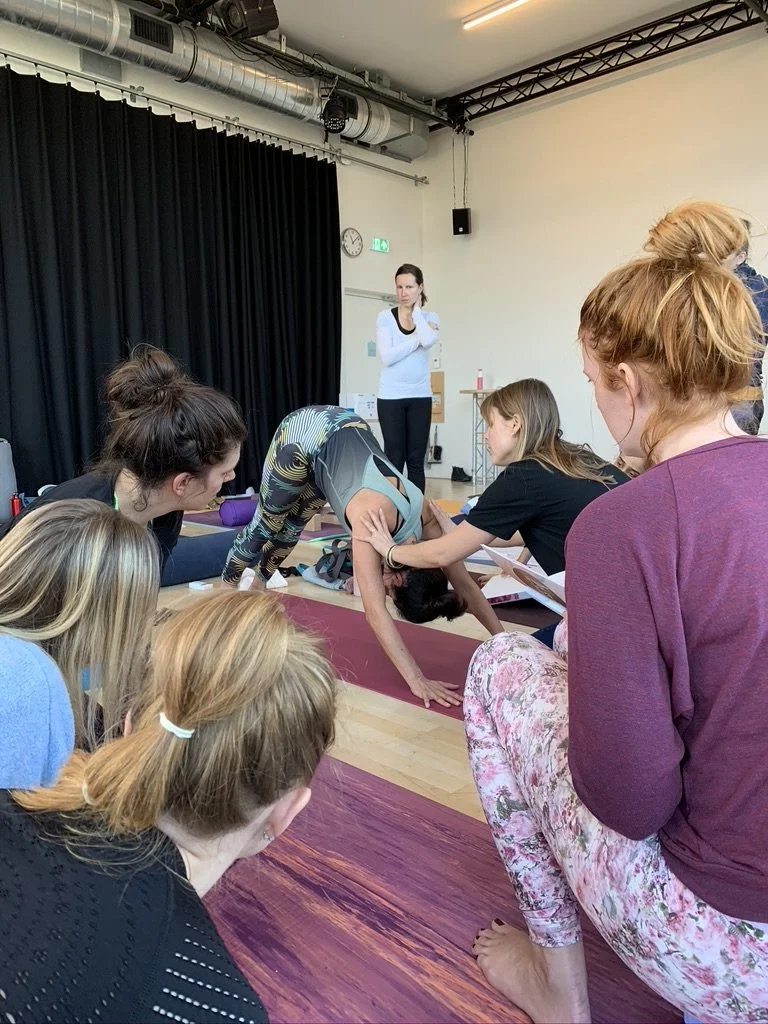The teacher as student: staying nourished
Teaching yoga asks for presence and attentiveness. And over time, it also asks something more subtle: renewal. When you keep showing up for others, it's easy to forget how to show up for yourself.
Why ongoing education matters
Professional development creates space for deepening. It shifts the focus toward embodied experience. You begin to feel more clearly what you already know. Your inner compass sharpens, and your teaching becomes more intentional.
The giving trap
As a teacher, you’re available. You plan your classes and stay attuned to your students. Gradually, your own practice fades into the background.
Fatigue can begin to build, sometimes without clear signs. The energy that once flowed from your own practice might feel less available.
Teaching may start to feel less alive. Without fresh input or personal engagement, it can drift away from something you embody.
You might lose touch with your motivation. The reason you began teaching could feel less clear.
Continuing education can support this return. It brings steadiness back into your rhythm and reminds you to receive as part of your work.
A space for reflection
Learning invites a shift in attention, often prompting honest self-inquiry. Even with a regular teaching rhythm, it’s not always easy to create space for deeper questions. Continued education can offer that pause. These questions could help you understand your current relationship with your teaching and your practice. To help you reconnect to what feels true now, and notice where your work may want to evolve:
What moves me in my practice right now?
What patterns are present in my teaching, and are they still aligned with how I want to teach?
What’s missing in the way I guide others?
What inspires me—or brings friction?
What do I need to stay connected?
Reflection invites awareness. It’s a way to stay in touch with your own process and values.
Returning to the student role
Letting yourself be a student again means allowing not-knowing. A willingness to explore without needing mastery. This is beginner’s mind: a soft, curious presence that meets what’s familiar with fresh attention.
The concept of beginner’s mind, drawn from Zen Buddhism, encourages you to meet each moment without assumptions. It’s a mindset of openness, even in familiar territory. Instead of leaning on expertise, you stay connected to discovery and listening. For yoga teachers, this can bring freshness to practice and teaching alike.
For teachers, this can also feel vulnerable. You’re used to offering clarity. But real learning often begins when you loosen that role. You follow sensation, allow process, and create space for insight to emerge gradually. This is where depth grows.
Your students feel it
When you engage with your own learning, your students notice. This quality isn’t spoken, but it shapes the atmosphere. Your guidance carries more depth, your presence becomes steadier, and your attention holds more nuance. That resonance invites students to explore with more trust.
Summer can be a moment to pause and notice what’s present. Even if the next season still feels far away, this is a natural time to choose what kind of support you want to have in place. Signing up now can give you something to grow toward. Trainings like Nidra, Restorative, Yin, or our 300h Vinyasa can offer a place to return to yourself.


